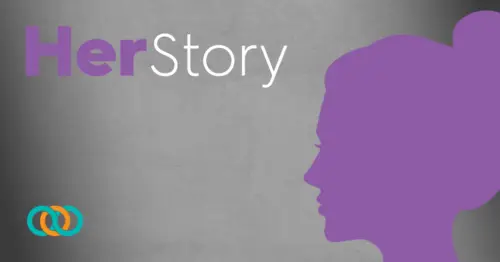Every corporate facilitator or trainer has faced that moment when a participant dominates the conversation, another seems completely disengaged, or someone disrupts the entire group dynamic. In fact, a recent survey of professional facilitators revealed that managing difficult participants ranks as their top challenge, affecting up to 80% of group sessions. However, the key to handling these challenging scenarios, addressing disruptive behavior, and maintaining productive group work lies in understanding the psychology behind participant behavior.
Creating a Prevention-First Framework
Initially, the most effective way to handle difficult participants is to prevent challenges before they arise. Building a “prevention-first framework” starts with creating a safe and supportive environment where all voices are valued.
Consider implementing these foundational prevention strategies:
- Set clear expectations and ground rules before sessions begin.
- Create a supportive atmosphere that encourages open dialog.
- Establish transparent communication channels.
- Build trust through consistent facilitation practices.
- Monitor group dynamics proactively.
Focus on developing and sharing a set of ground rules covering punctuality, participation, and device usage. Always ensure participants understand that what’s shared in the session stays in the session, fostering an environment of mutual trust and respect. Building rapport and trust among team members is crucial. This involves facilitating team-building activities and creating informal interaction opportunities.
To maintain emphasis on collective learning outcomes, continuously nurture the principles of respect, confidentiality, and non-judgment while remaining adaptable to evolving group dynamics. This approach is effective in preventing common challenges like participant disengagement or dominance of discussions.
Specific Advice for Addressing Disengaged, Disruptive, or Overly Talkative Participants
Understanding how to address challenging behavior is a crucial core competency for any facilitator. When these behaviors are not resolved timely and effectively, learning transfer and team development and performance different can take a huge hit.
Accordingly, try these proven strategies for managing different participant types:
- For overly talkative participants: Set clear time limits for comments and enforce them consistently.
- For disengaged members: Create opportunities for private encouragement during breaks.
- For disruptive individuals: Address behavior immediately through direct, respectful intervention
- For silent participants: Provide anonymous feedback options to increase participation
Moreover, timing your interventions is critical. As facilitators, we must recognize when to step in and whether to address an individual or the entire team. Therefore, always ensure your interventions maintain the group’s autonomy while developing its long-term effectiveness.
Additionally, facilitators have also found success in redirecting disruptive behavior by implementing structured brainstorming sessions. This approach gives each team member specific time slots to present their thoughts without interruption. Through experience, I’ve learned that chronic talkers often respect clear time boundaries when expectations are set upfront.
Most compelling evidence suggests that treating participants with kindness while maintaining firm boundaries leads to more satisfying conversations. Focus on making everyone feel heard rather than trying to change personalities or manage behaviors directly.
Implementing Real-Time Intervention Strategies
Successful real-time interventions require both skill and strategy. Consider this three-step approach for addressing challenging situations as they arise.
Our intervention strategy follows this structured approach:
- First, objectively describe what you’re observing without judgment.
- Next, explain how the behavior impacts the group.
- Finally, redirect the behavior constructively.
As mentioned earlier, it’s important to remember that timing is crucial in intervention effectiveness. The best practice is to hold back until you observe a clear pattern, giving the team an opportunity to self-correct. Straightaway after noticing persistent issues, implement the appropriate level of intervention, always choosing the least intrusive option that could still be effective.
Undoubtedly, adaptability remains essential in real-time facilitation. Consider using data-driven approaches to calibrate your interventions. Through in-the-moment polls and engagement metrics, you can adjust our facilitation style to meet the group’s needs.
In situations where tension escalates, we recommend taking a short break to regroup and reset the discussion. This approach allows everyone to step back and return with renewed focus. For managing immediate disruptions, utilize the “parking lot” technique – a designated space where you can temporarily store off-topic discussions for later consideration.
Maintaining calm authority while addressing issues helps preserve group dynamics. If you notice biased behavior or microaggressions, address them immediately but constructively, steering the group back to established inclusive norms.
Building Facilitator Resilience
Building resilience as facilitators has become essential for long-term effectiveness. We define facilitator resilience as the ability to cope with and adapt to the complexities of facilitation while maintaining effectiveness and self-care.
Essentially, our role requires us to handle intense facilitation periods alongside emotional labor. As facilitators, we’ve learned that protected reflection time allows us to think critically about our process and make needed adaptations.
Above all, we prioritize these proven self-care practices:
- Taking intentional breaks between sessions.
- Practicing mindfulness techniques.
- Setting clear professional boundaries.
- Scheduling “do nothing” periods.
- Maintaining regular sleep schedules.
Notably, studies show that resilience-focused interventions have demonstrated significant positive effects on reducing stress and psychological distress. As a result, incorporating both cognitive behavioral techniques and mindfulness practices into your routine, as this combination has shown the most effectiveness in building resilience.
Recognize the importance of checking in with yourself after challenging sessions. Taking stock of your emotional state and debriefing with experienced colleagues helps you process difficult conversations. Through continuous feedback and adaptation, you will strengthen your ability to cope with facilitation intensity while sustaining effectiveness.
Conclusion
Managing difficult participants certainly presents challenges, though combining psychological understanding with practical strategies leads to successful facilitation. Through implementing a prevention-first framework, you will see remarkable improvements in group dynamics and participant engagement.
Certainly, each facilitation session brings unique challenges. Nevertheless, armed with targeted strategies for different participant types and real-time intervention techniques, facilitators can maintain productive sessions while ensuring every voice gets heard.
Building facilitator resilience stands as the cornerstone of long-term success. Rather than viewing difficult participants as obstacles, see them as opportunities to strengthen your skills and create more inclusive environments.
Download: Trends in Learning & Development: Insights from Learning Leaders
Ready to Work with Us?
Does your learning and development department have more projects than people? TrainingPros has been named as a Top 20 Staffing Company internationally by Training Industry. Coupling this award with being named a Smartchoice Preferred Provider by Brandon Hall Group for 2025 underscores TrainingPros’ unwavering commitment to delivering high-quality, tailored training solutions. If you need facilitation consultants or virtual classroom producers skilled in hybrid training, contact one of our industry-expert relationship managers today. When you have more projects than people™, let us find the consultant to start your project with confidence. Schedule a consultation today.
- 0share
- LinkedIn0
- Twitter0
- Facebook0
- Love This0











